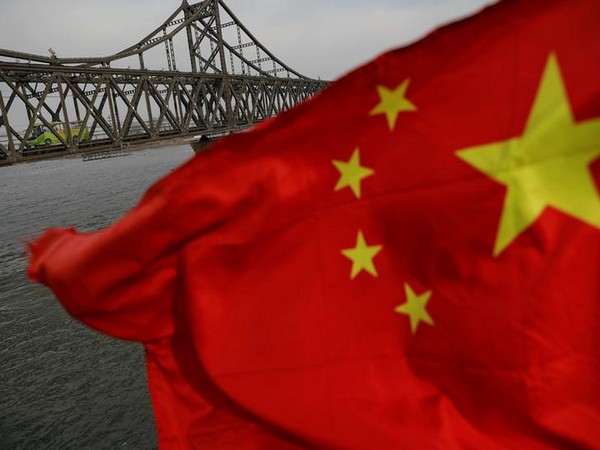Pirated copies of computer software are blatantly used across China and it business is not restricted within the country’s limits. The recent programme failure in the National Data Centre (NDC) in Bangladesh due to unlicensed software supplied by China has once again shown the extent of Chinese involvement in the unethical and illegal. Software piracy has been going unabated in China as the Beijing government apparently took no strong action against the IP infringers. This led to economic losses for software companies, which invested money and efforts to build products. At the same time, the pirated software business has exposed Chinese people and companies to cyber-attacks.
In case of Bangladesh, the Chinese company responsible for the use of pirated software is ZTE. Many countries have banned ZTE for alleged cyber espionage on behalf of the communist government of China. The pirated software in Bangladesh’s NDC led to problems in the firewall system, updating the programme and fixing hardware. China has always been a global piracy hotspot, and it topped the list in 2022, according the Revenera Compliance Intelligence. Two decades ago too, China was among the top countries with the highest piracy rates. It reached 94 percent in 2001.
In the 1990s, Chinese officials revealed that the government agencies themselves were using pirated software. Bob Lu, who was Microsoft’s marketing manager in China in 1995, had found that 95 percent of computer software in China were pirated. “No ministry has been buying software totally legally. Some are using no legal software at all,” he had said. Things have not changed even after two-three decades. A few years ago, former Microsoft CEO Steve Ballmer expressed concerns over 90 percent of Chinese companies using Windows but just 1 percent pay for it.
A survey by BSA Global Software in 2018 revealed that the rate of unlicensed software installation remained high in the past decade, touching 77 percent. While it has led to heavy losses to global software firms, Chinese people too are hurt due to software piracy. The Asia-Pacific region has the highest overall rate of unlicensed software, which has a staggering commercial value of USD 16.4 billion. “Within the region, USD 6.8 billion worth of the unlicensed commercial value comes from China alone,” notes the survey. A majority of the population and even government offices are vulnerable to cyber-attacks.
Those using pirated copies do not update their software to get the latest safety features as they fear it would lock, damage or knock off software. Many reputed educational institutions such as Tsinghua University and major companies like China Telecom and Hainan Airlines have been subjected to cyber-attacks. Cases of malware and ransomware attacks are quite common in China as pirated software sellers make products more vulnerable to hacking by adding ‘back doors ’to gain access to users’ computers. Talking about an office in Beijing, Archefact Group founder Thomas Parenty said “It turned out every single one of their computers, all the software, was bootlegged.”
While the Beijing government has time and again claimed to have taken action against the growing piracy software business in China, the ground realities however are different. A decade ago, it had announced that pirated software will be removed through crackdowns on intellectual property (IP) infringement. But the various reports clearly showed software piracy has continued to increase. Even there are allegations that software piracy in China is often encouraged by the government.
Protection of IP rights is an uphill struggle in China as courts there have failed to protect innovative individuals, said marketing expert Tom Doctoroff. “When it comes to innovation, the Chinese won’t deliver,” he said. Chinese companies are deeply involved in the software piracy business. In 2013, a Chinese businessman was found to have sold pirated copies of US business software in 61 countries. He had stolen original software from 200 different US companies. The pirated software business appears to happen in China without any fear and they are sold at the full, legal price.
1 https://en.barta24.com/details/international-en/179792/bangladesh-national-data- centre-faces-failure-due
2 https://www.revenera.com/blog/software-monetization/software-piracy-stat-watch/
3 https://www.computerworld.com/article/2559505/china-syndrome–beware-of-pirated- software.html
4 https://www.computerworld.com/article/2582887/survey–software-piracy-on-the-rise- in-asia.html
5 https://www.latimes.com/archives/la-xpm-1995-07-10-fi-22348-story.html
6 https://fortune.com/2018/11/02/ballmer-china-windows-piracy/
7 https://gss.bsa.org/wp-content/uploads/2018/05/2018_BSA_GSS_Report_en.pdf
8 https://www.nytimes.com/2017/05/15/business/china-ransomware-wannacry- hacking.html
9 https://www.usnews.com/news/business/articles/2017-05-16/chinas-fondness-for- pirated-software-raises-risks-in-attack
10 https://www.pcworld.com/article/499095/article-2366.html
11 https://www.ecommercetimes.com/story/software-piracy-spreading-with-the-virus- 86826.html
12 https://www.forbes.com/sites/kenrapoza/2012/07/22/in-china-why-piracy-is-here-to- stay/
13 https://www.reuters.com/article/usa-china-counterfeit-idUSL1E9C87HR20130108

